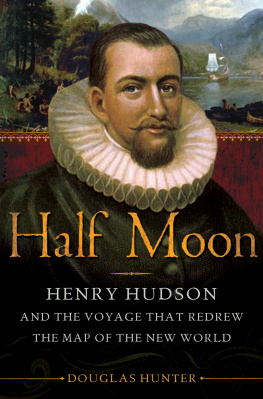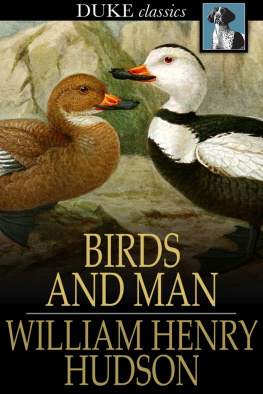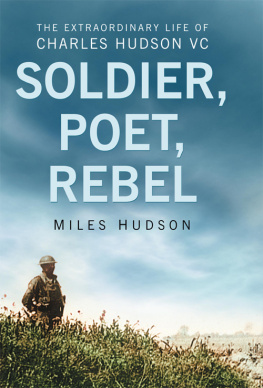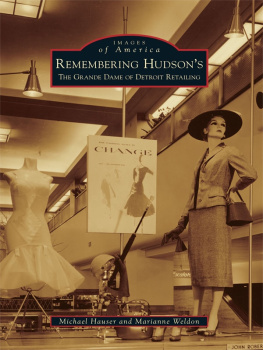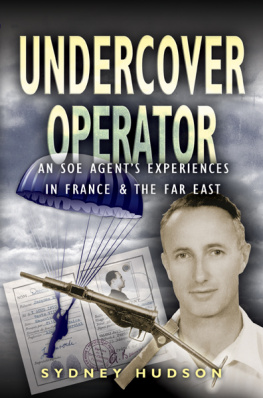W. H. Hudson - Far Away and Long Ago: A History of My Early Life
Here you can read online W. H. Hudson - Far Away and Long Ago: A History of My Early Life full text of the book (entire story) in english for free. Download pdf and epub, get meaning, cover and reviews about this ebook. year: 2011, publisher: Barnes & Noble, genre: Non-fiction. Description of the work, (preface) as well as reviews are available. Best literature library LitArk.com created for fans of good reading and offers a wide selection of genres:
Romance novel
Science fiction
Adventure
Detective
Science
History
Home and family
Prose
Art
Politics
Computer
Non-fiction
Religion
Business
Children
Humor
Choose a favorite category and find really read worthwhile books. Enjoy immersion in the world of imagination, feel the emotions of the characters or learn something new for yourself, make an fascinating discovery.
- Book:Far Away and Long Ago: A History of My Early Life
- Author:
- Publisher:Barnes & Noble
- Genre:
- Year:2011
- Rating:5 / 5
- Favourites:Add to favourites
- Your mark:
- 100
- 1
- 2
- 3
- 4
- 5
Far Away and Long Ago: A History of My Early Life: summary, description and annotation
We offer to read an annotation, description, summary or preface (depends on what the author of the book "Far Away and Long Ago: A History of My Early Life" wrote himself). If you haven't found the necessary information about the book — write in the comments, we will try to find it.
W. H. Hudsons Far Away and Long Ago, an enthralling memoir of his boyhood in Argentina, where he acquired his love of nature, has become a classic. Hudsons rich descriptions of his experiences growing up on the pampas, teeming with birds and wildlife, as well as of ranch life and gauchos, leap off the pages of this unforgettable memoir.
Far Away and Long Ago: A History of My Early Life — read online for free the complete book (whole text) full work
Below is the text of the book, divided by pages. System saving the place of the last page read, allows you to conveniently read the book "Far Away and Long Ago: A History of My Early Life" online for free, without having to search again every time where you left off. Put a bookmark, and you can go to the page where you finished reading at any time.
Font size:
Interval:
Bookmark:
A History of My Early Life
W. H. HUDSON

This 2011 edition published by Barnes & Noble, Inc.
All rights reserved. No part of this publication may be reproduced, stored in a retrieval system, or transmitted, in any form or by any means, electronic, mechanical, photocopying, recording, or otherwise, without prior written permission from the publisher.
Barnes & Noble, Inc.
122 Fifth Avenue
New York, NY 10011
ISBN: 978-1-4114-4387-7
CHAPTER I
Earliest Memories
PreambleThe house where I was bornThe singular Ombu treeA tree without a nameThe plainThe ghost of a murdered slaveOur playmate, the old sheep-dogA first riding-lessonThe cattle: an evening sceneMy motherCaptain ScottThe hermit and his awful penance.
I T was never my intention to write an autobiography. Since I took to writing in my middle years I have, from time to time, related some incident of my boyhood, and these are contained in various chapters in The Naturalist in La Plata, Birds and Man, Adventures amongBirds, and other works, also in two or three magazine articles: all this material would have been kept back if I had contemplated such a book as this. When my friends have asked me in recent years why I did not write a history of my early life on the pampas, my answer was that I had already told all that was worth telling in these books. And I really believed it was so; for when a person endeavours to recall his early life in its entirety he finds it is not possible: he is like one who ascends a hill to survey the prospect before him on a day of heavy cloud and shadow, who sees at a distance, now here, now there, some feature in the landscapehill or wood or tower or spiretouched and made conspicuous by a transitory sunbeam while all else remains in obscurity. The scenes, people, events we are able by an effort to call up do not present themselves in order; there is no order, no sequence or regular progressionnothing, in fact, but isolated spots or patches, brightly illumined and vividly seen, in the midst of a wide shrouded mental landscape.
It is easy to fall into the delusion that the few things thus distinctly remembered and visualized are precisely those which were most important in our life, and on that account were saved by memory while all the rest has been permanently blotted out. That is indeed how our memory serves and fools us; for at some period of a man's lifeat all events of some livesin some rare state of the mind, it is all at once revealed to him as by a miracle that nothing is ever blotted out.
It was through falling into some such state as that, during which I had a wonderfully clear and continuous vision of the past, that I was temptedforced I may sayto write this account of my early years. I will relate the occasion, as I imagine that the reader who is a psychologist will find as much to interest him in this incident as in anything else contained in the book.
I was feeling weak and depressed when I came down from London one November evening to the south coast: the sea, the clear sky, the bright colours of the afterglow kept me too long on the front in an east wind in that low condition, with the result that I was laid up for six weeks with a very serious illness. Yet when it was over I looked back on those six weeks as a happy time! Never had I thought so little of physical pain. Never had I felt confinement lessI who feel, when I am out of sight of living, growing grass, and out of sound of birds' voices and all rural sounds, that I am not properly alive!
On the second day of my illness, during an interval of comparative ease, I fell into recollections of my childhood, and at once I had that far, that forgotten past with me again as I had never previously had it. It was not like that mental condition, known to most persons, when some sight or sound or, more frequently, the perfume of some flower, associated with our early life, restores the past suddenly and so vividly that it is almost an illusion. That is an intensely emotional condition and vanishes as quickly as it comes. This was different. To return to the simile and metaphor used at the beginning, it was as if the cloud shadows and haze had passed away and the entire wide prospect beneath me made clearly visible. Over it all my eyes could range at will, choosing this or that point to dwell on, to examine it in all its details; and, in the case of some person known to me as a child, to follow his life till it ended or passed from sight; then to return to the same point again to repeat the process with other lives and resume my rambles in the old familiar haunts.
What a happiness it would be, I thought, in spite of discomfort and pain and danger, if this vision would continue! It was not to be expected: nevertheless it did not vanish, and on the second day I set myself to try and save it from the oblivion which would presently cover it again. Propped up with pillows I began with pencil and writing-pad to put it down in some sort of order, and went on with it at intervals during the whole six weeks of my confinement, and in this way produced the first rough draft of the book.
And all this time I never ceased wondering at my own mental state; I thought of it when, quickly tired, my trembling fingers dropped the pencil; or when I woke from uneasy sleep to find the vision still before me, inviting, insistently calling to me, to resume my childish rambles and adventures of long ago in that strange world where I first saw the light.
It was to me a marvellous experience; to be here, propped up with pillows in a dimly lighted room, the night-nurse idly dosing by the fire; the sound of the everlasting wind in my ears, howling outside and dashing the rain like hailstones against the window-panes; to be awake to all this, feverish and ill and sore, conscious of my danger too, and at the same time to be thousands of miles away, out in the sun and wind, rejoicing in other sights and sounds, happy again with that ancient long-lost and now recovered happiness!
During the three years that have passed since I had that strange experience, I have from time to time, when in the mood, gone back to the book and have had to cut it down a good deal and to reshape it, as in the first draft it would have made too long and formless a history.
The house where I was born, on the South American pampas, was quaintly named Los Veinte-cinco Ombues, which means "The Twenty-five Ombu Trees," there being just twenty-five of these indigenous treesgigantic in size, and standing wide apart in a row about 400 yards long. The ombu is a very singular tree indeed, and being the only representative of tree-vegetation, natural to the soil, on those great level plains, and having also many curious superstitions connected with it it is a romance in itself. It belongs to the rare Phytolacca family, and has an immense girthforty or fifty feet in some cases; at the same time the wood is so soft and spongy that it can be cut into with a knife, and is utterly unfit for firewood, for when cut up it refuses to dry, but simply rots away like a ripe water-melon. It also grows slowly, and its leaves, which are large, glossy and deep green, like laurel leaves, are poisonous; and because of its uselessness it will probably become extinct, like the graceful pampas grass in the same region. In this exceedingly practical age men quickly lay the axe at the root of things which, in their view, only cumber the ground; but before other trees had been planted the antiquated and grand-looking ombu had its uses; it served as a gigantic landmark to the traveller on the great monotonous plains, and also afforded refreshing shade to man and horse in summer; while the native doctor or herbalist would sometimes pluck a leaf for a patient requiring a very violent remedy for his disorder. Our trees were about a century old and very large, and, as they stood on an elevation, they could be easily seen at a distance of ten miles. At noon in summer the cattle and sheep, of which we had a large number, used to rest in their shade; one large tree also afforded us children a splendid play-house, and we used to carry up a number of planks to construct safe bridges from branch to branch, and at noon, when our elders were sleeping their siesta, we would have our arboreal games unmolested.
Font size:
Interval:
Bookmark:
Similar books «Far Away and Long Ago: A History of My Early Life»
Look at similar books to Far Away and Long Ago: A History of My Early Life. We have selected literature similar in name and meaning in the hope of providing readers with more options to find new, interesting, not yet read works.
Discussion, reviews of the book Far Away and Long Ago: A History of My Early Life and just readers' own opinions. Leave your comments, write what you think about the work, its meaning or the main characters. Specify what exactly you liked and what you didn't like, and why you think so.







